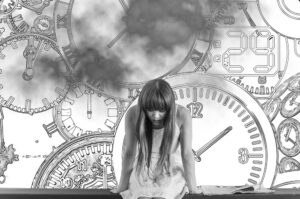Losing Sleep Made Worse by Watching Clock

If you are losing sleep, you are not alone. Up to 70 million Americans suffer some form of on-going sleep problem. However, there are remedies including not watching your clock.
A new study from the University of Indiana found that checking the time worsens insomnia. In turn, that leads to increased use of sleep aides. However, the same study determined that a simpler solution may be to just stop peeking at the clock.
The research was led by Spender Dawson, associate director of training in the Department of Psychological and Brain Sciences. Publication of the findings appear in the May 16 edition of The Primary Care Companion of CNS Disorders.
“People are concerned that they’re not getting enough sleep, then they start estimating how long it will take them to fall back asleep and when they have to be up,” said Dawson. “That is not the sort of activity that’s helpful in facilitating the ability to fall asleep — the more stressed out you are, the harder time you’re going to have falling asleep.”
Losing Sleep Comes in Many Forms
Insomnia is a major reason why people lose sleep. However it is not the only one. Other common sleep disorders include sleep deprivation, sleep deficiency, restless leg syndrome, and sleep apnea.
The unifying thread for all these afflictions is that they result in sufferers losing sleep.
There are several symptoms that indicate you may have a sleep disorder. They include:
- Insomnia results in difficulty falling or staying asleep and feeling drowsy when awake.
- Snoring and breathing interruption are common signs of sleep apnea.
- Restless leg syndrome is self explanatory. However, its causes vary. Stress, pregnancy, nerve damage, kidney disease, and iron deficiency can all trigger this disorder.
- Lack of sleep is the primary sign of sleep deprivation.
- Sleep deficiency is also characterized by a lack of sleep or sleeping at the wrong time of day.
Cost of Losing Sleep
A lack of sleep has economic consequences. For example, it is estimated that a lack of sleep costs the American economy $411 billion a year.
As part of the economic cost, losing sleep takes a toll on the health of sufferers.
“Sleep in many ways is associated with mortality — cardiovascular disease, diabetes, mental health, brain health, immune function, respiratory conditions, and cognitive function and performance,” Azizi Seixas said during a Harvard University panel discussion on sleep. Seixas is an associate professor at the University of Miami Miller School of Medicine.
In addition to impacting the economy and your health, losing sleep long-term can be fatal to others. For instance, drowsy driving results in over 6,000 traffic deaths each year.
Sleep Aids
The prevalence of sleep loss and resulting problems has stimulated the sleep aids business. Allied Market Research put the value of that market at over $59.815 billion. By 2030, Allied expects the sleep aids segment to grow at an annual rate of 6.9 percent to almost $112 billion.
However, there are also natural methods that may improve your sleep. Generally, these practices are free or cheap.
Charlene Gamaldo, MD, medical director of Johns Hopkins Center for Sleep offers some suggestions for better sleep including:
- Drink warm milk or Chamomile tea.
- Exercise during the day, but not within two hours of bedtime.
- Keep cool with the thermostat at 72 degrees or below.
- Keep dark. Even the light from a smartphone can interfere with sleep.
Lastly, based on the University of Indiana study, you might consider moving clocks out of the bedroom.
Read More:
Come back to what you love! Dollardig.com is the most reliable cash-back site on the web. Just sign up, click, shop, and get full cashback!


